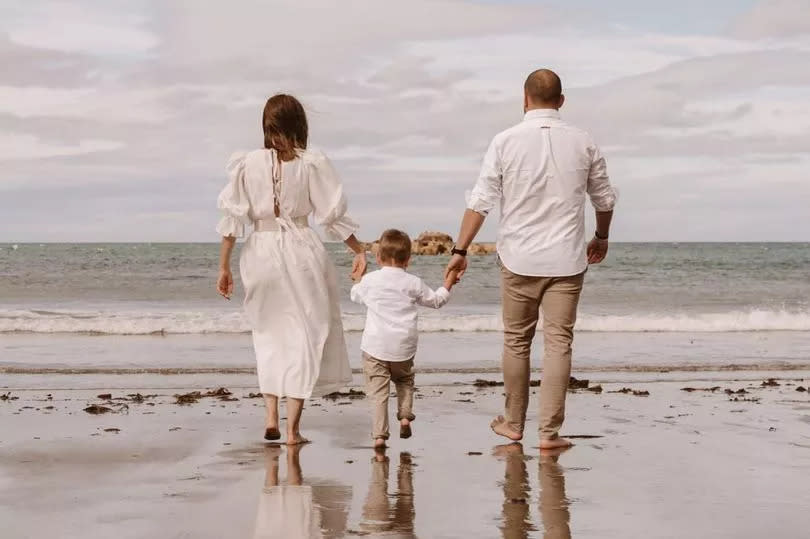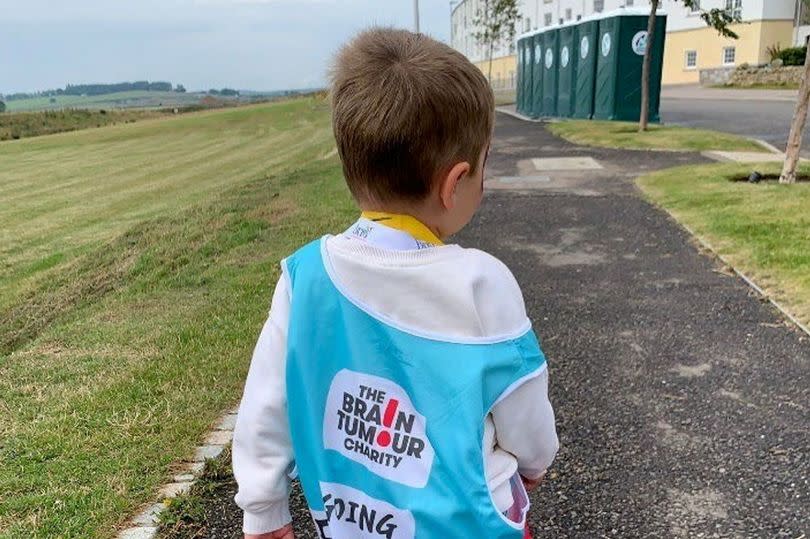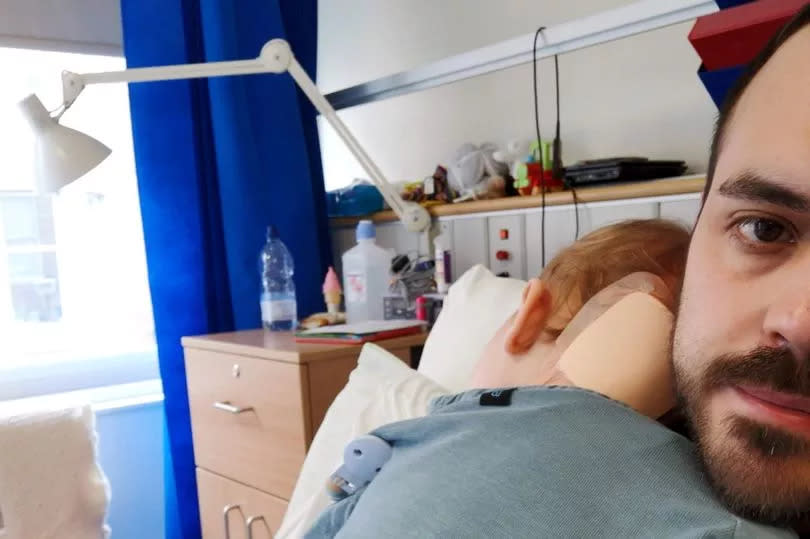Aberdeenshire family heartbroken as young son diagnosed with aggressive brain tumour

An Aberdeenshire toddler was diagnosed with an incurable brain tumour the size of a tennis ball after his parents thought he had a "stomach bug".
Lucas Garcia-Batalla was diagnosed with a grade 3 anaplastic ependymoma - a fast growing malignant tumour - just ten days after his first birthday.
Before that, Lucas had flu-like symptoms and his diagnosis came as a "shock" to his parents David Garcia Jurado, 42, and Laura Batalla, 38.
READ MORE: Man arrested and charged following disturbance in Aberdeen's Northfield
READ MORE: Bridge of Don residents worry proposed battery storage facility could cause 'major disaster'
Lucas then had three major brain surgeries, 13 months of chemotherapy and two months of proton beam therapy.
Unfortunately, nothing has worked for Lucas and his dad David suspects he might have less than a year to live.
David, a senior project manager, from Stonehaven, said: "Just before his first birthday Lucas was sick. He didn't have much appetite but we thought it was a stomach bug.
"He didn't stop vomiting, he was lethargic, and everything happened so quickly - it was not a slow progression. A few days later, a CT scan revealed a massive tumour on the back of his head. It was 4cm by 4cm - it was like a tennis ball.
"That was a very dark moment for me. I still have the picture in my mind of my wife holding Lucas and them telling us he had a brain tumour."
Lucas, now six, celebrated his first birthday on April 1, 2019.

After a CT scan revealed Lucas had a grade 3 anaplastic ependymoma he was transferred to The Royal Hospital for Children and Young People, Edinburgh where he had a 10 hour operation to remove the tumour - which was successful.
David said: "His first surgery was just two days after his diagnosis. They managed to remove everything, it was a successful surgery.
"Lucas then had chemotherapy for 13 months, after that an MRI was ok - he was clear."
Three months after he finished his chemotherapy Lucas relapsed in September 2020. He underwent another surgery and was transferred to the Christie Hospital, Manchester where he had two months of proton beam therapy.
David said: "We had hope for a year and then in December 2021 he relapsed again. He had palliative surgery in March 2022 to remove the tumour, again, that was successful.
"After that in January 2023, he had experimental Gamma Knife surgery - a type of radiotherapy treatment. It's the first time something like that has been done to a four-year-old to stop/delay the growth for some time."

Unfortunately, in June 2023, an MRI scan revealed the tumour is continuing to grow.
David said there are no more treatment options left for Lucas and they are aiming to give him the best life possible.
He said: "There are no more options for him, how many times can you open his head and have a surgery? In all of his journey, the most important thing is to keep him alive but the side effects are really rough.
"Lucas is blind in the right eye and deaf in the left ear. It is a miracle that he has been able to go to school. He has a great sense of humour, it is unbelievable. You wouldn't believe what he has gone through."
David said the tumour is like a "time bomb" and Lucas might have just a year left to live, and said it is important to "enjoy the moment" and give Lucas a "normal life".
David said: "It is very difficult to understand, at some point you learn to live with uncertainty. It is like having a ticking time bomb, but we want him to have the most normal life possible - it is all about him."
Catherine Fraher, director of services and digital health at The Brain Tumour Charity, said: "We're really grateful to everyone who shares their - often heartbreaking - story to raise awareness of brain tumours.
"We know that every family deals with a brain tumour diagnosis and its aftermath in their own unique way.
"That's why The Brain Tumour Charity offers support to anyone who needs it. It's so important for them to know that they are not alone."

 Yahoo News
Yahoo News 
